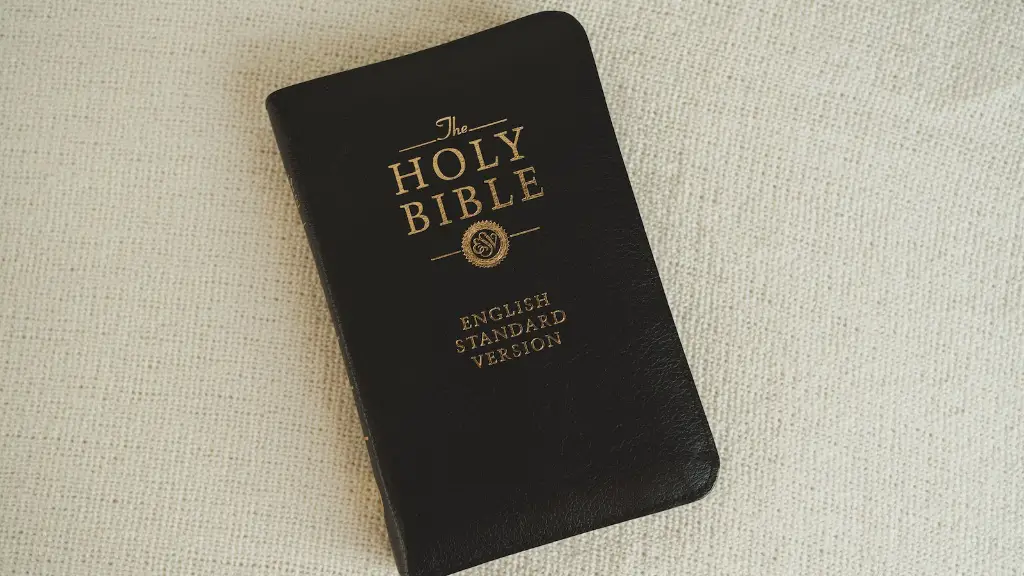The Bible is full of references to planting and harvesting, which are often used as metaphors for sowing seeds of faith and reaping a bountiful harvest. In the Old Testament, God promises to bless those who faithfully sow their seeds and to curse those who do not (Deuteronomy 11:26-28). In the New Testament, Jesus tells the story of the sower who scatters seed on the ground, and the seed that falls on good ground bears fruit (Luke 8:4-15). Paul writes about sowing and reaping in Galatians 6:7-8, and he urges believers to sow generously, expecting a bountiful harvest.
In Luke, Jesus compares the kingdom of God to a farmer sowing seeds. He says that some seeds fall on the path and are eaten by birds, some land on rocky ground and die because they have no water, some fall among thorns and grow but get choked by the weeds, and some hit good soil and grow into a plant that produces a hundred or sixty or thirty times what was sown.
In Matthew, Jesus says that a farmer went out to sow his seed. Some of the seed fell on the path, and the birds came and ate it up. Some fell on rocky ground, where it didn’t have much soil. It sprang up quickly because the soil was shallow. But when the sun came up, it was scorched, and it withered because it had no root. Some seed fell among thorns, and the thorns grew up and choked it. But some seed fell on good soil, and it produced a crop—a hundred, sixty or thirty times what was sown.
Both of these passages emphasize that not all seed that is sown will result in a harvest. Some will be lost, some will not take root, and some will be choked by weeds. But some will take root and
What does the Bible mean by sowing seed?
The concept of sowing seeds is a powerful one that can be applied to many areas of life. If we give something, we can receive something in return. This principle can be applied to relationships, our careers, and even our personal development. When we plant something and care for it, we can reap something bigger and greater.
Paul’s metaphor is that we are all farmers, scattering seeds across the field of life. These seeds will grow and bear fruit, depending on the type of seed. If we sow seeds of grace, joy, love, and anger, we will reap a harvest of those things. But if we sow seeds of hatred and self-loathing, that is what we will harvest.
What does the Bible say about sowing good seed
The Bible has a lot to say about sowing seeds! In Ecclesiastes 11:6, we are instructed to sow our seeds in the morning and at evening, and not to let our hands be idle in between. This is because we don’t know which seed will succeed – whether it is the one we sow in the morning or the one we sow at evening. In Galatians 6:7-8, we are told that whatever seed we sow, we will reap in return. This is a principle that is also seen in Genesis 8:22 and Genesis 26:12. And in Luke 8:5-15, we see the story of the sower who went out to sow his seed. Some of the seed fell on good ground and yielded a crop, while other seed fell on rocky ground or among thorns and did not yield a crop. The seed that fell on good ground represents those who hear the word of God and obey it, while the seed that fell on rocky ground or among thorns represents those who hear the word but do not obey it.
The directions are simple: take the seeds you need for your own heart and sow the remainders into the lives of those around you. Pray for the seeds to take root and grow in the recipients heart. By doing this, you will not only be helping others, but you will also be helping yourself.
What is the difference between tithe and sowing seed?
A tithe is usually a tenth of your income, while seed money is a donation towards something that will grow, like a church or a business. Both are giving thanks for what you have, but a tithe is given after you have paid your taxes, while seed money is given with the expectation that it will grow.
This is a powerful biblical principle that can be applied to business. When we sow into our business, we will reap a bountiful harvest. We need to be generous with our time, our talents, and our resources. When we do this, God will bless our business and we will be successful.
What does the KJV Bible say about sowing seeds?
The sower went out to sow his seed, and some fell by the wayside. The seed was trodden down and the birds ate it. Some fell on a rock, and when it sprang up it withered away because it lacked moisture.
There are four different types of ground mentioned in the passage- wayside, stony, thorny, and good. The wayside is the path on which the seed falls, and the stony ground is the hard ground where the seed can’t penetrate. The thorny ground is the ground with thorns that choked the seed. The good ground is the ground where the seed can grow and produce fruit.
Why should we sow good seeds
It is so important to sow good seeds through our behavior! Just like real seeds, they will spend some time underground, dormant. But if we are patient and wait in faith, the good results will come. Keep up the good work!
Seeds must be planted at thecorrect distance or intervals from each other. This is to ensure that all plants get their fair share of light, water and nutrients for growth and development.
What does it mean God gives seed to the sower?
This verse is talking about how God provides for those who are generous and those who are just trying to meet their basic needs. It is a reminder that God is always there to help us, no matter what our circumstances are.
When we have faith, we trust in something that we cannot see. We may not know how things will turn out, but we have to have faith that everything will work out in the end. often times, we have to take a leap of faith into the unknown and trust that everything will be alright.
What happens when you sow a seed
Sowing seeds is a great way to get your garden started, and it can be done indoors or outdoors. If you do it indoors, you have more control over the germination process, and you can start your garden any time of the year.
The first step in a seed’s journey to becoming a seedling is the sprouting of the root. The root is the first part of the plant to emerge from the seed, and it is responsible for anchoring the plant to the ground and absorbing water. Once the root has taken in sufficient water, the shoot begins to emerge from the seed. The shoot contains the leaves of the plant, which are responsible for photosynthesis. From the shoot, the plant will continue to grow and develop, eventually producing flowers and fruit.
Can I sow my tithe?
One of the most important and impactful things we can do to receive tangible blessings from the Lord is to sow our tithe. When we sow our tithe, we are releasing our faith and trust that God will bless us abundantly. The law of tithing is an irreversible law, meaning that it will always produce results. When we sow our tithe, we are sowing into God’s kingdom and His righteousness. As we sow our tithe, we can expect to see an increase in our finances, our relationships, our health, and every area of our life.
This passage from Galatians is a great reminder that we reap what we sow. If we sow negativity, then we will reap negativity. If we sow positivity, then we will reap positivity. This is a universal law that we can always count on. So let’s be mindful of what we sow, because we will definitely reap the consequences.
Final Words
The Bible says that when we sow seeds, we are planting the seeds of God’s love. When we sow seeds, we are creating something new and beautiful that will grow and thrive.
The bible teaches that when we sow seeds, we are planting the seeds of our future. Our future depends on the seeds we sow today. If we sow good seeds, we will reap a good harvest. If we sow bad seeds, we will reap a bad harvest.





